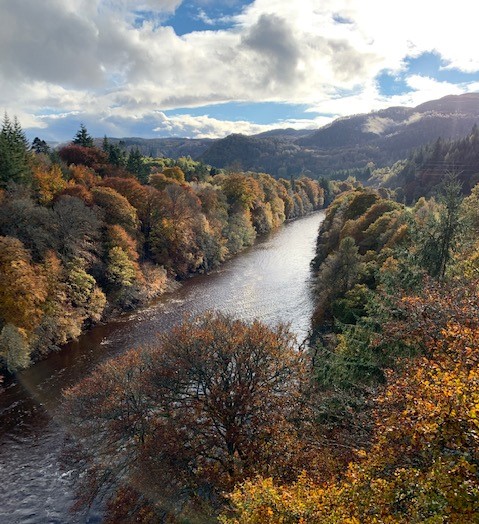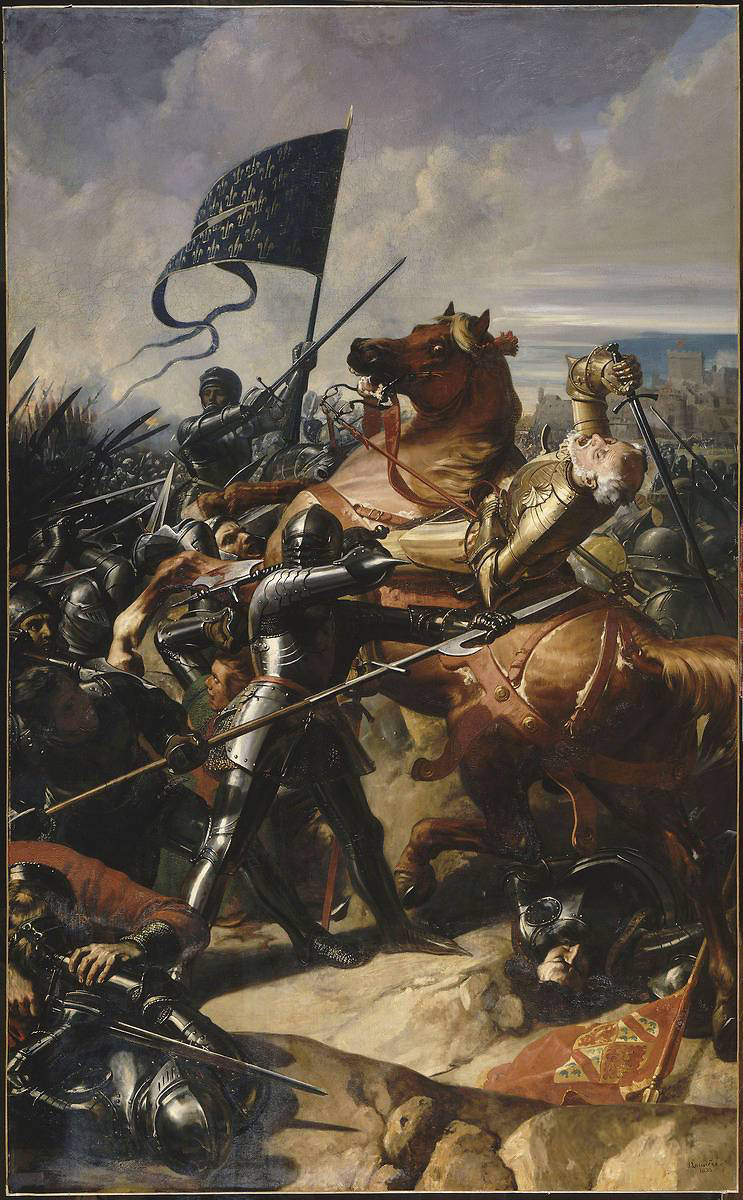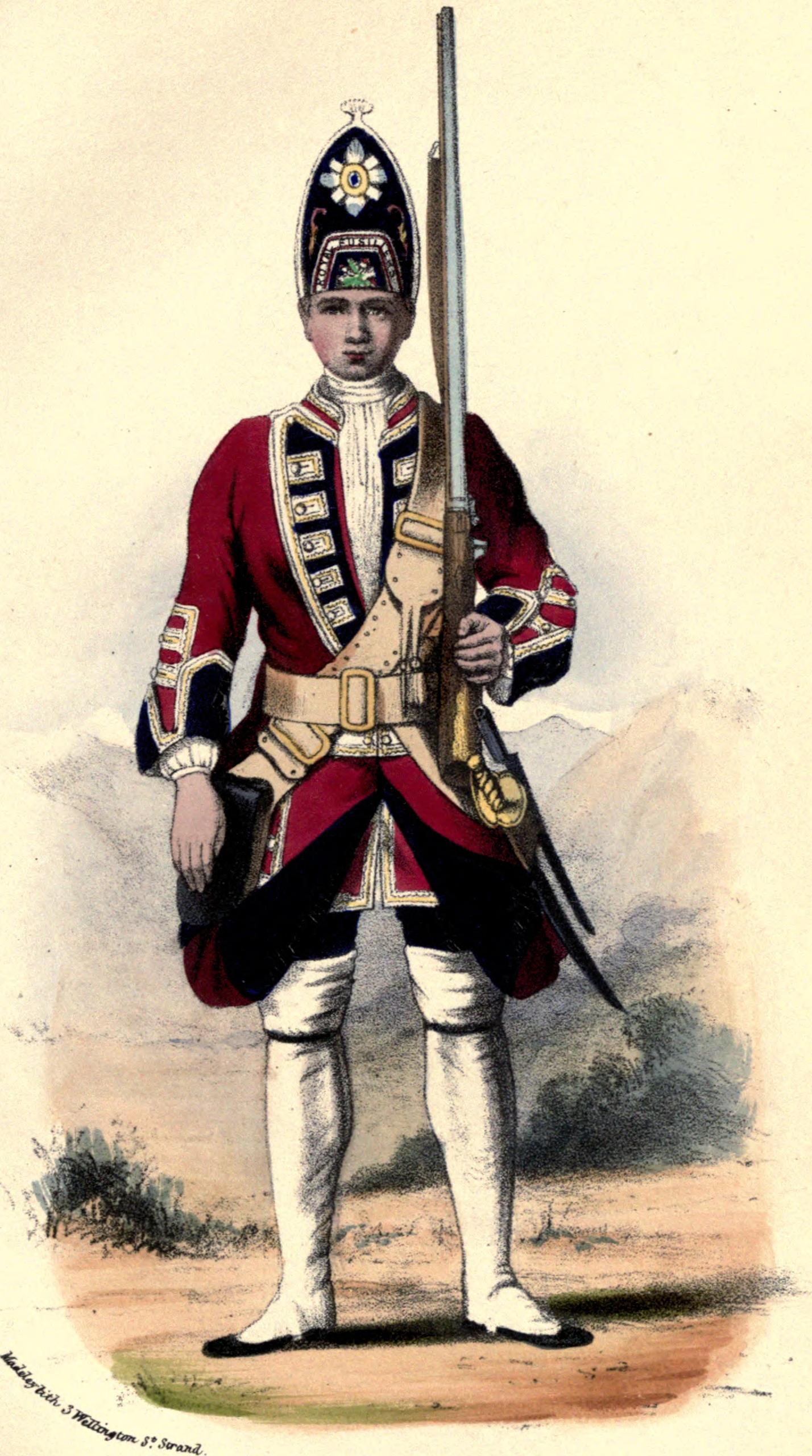|
1743 In Scotland
Events from the year 1743 in Scotland. Incumbents * Secretary of State for Scotland: The Marquess of Tweeddale Law officers * Lord Advocate – Robert Craigie * Solicitor General for Scotland – Robert Dundas, the younger Judiciary * Lord President of the Court of Session – Lord Culloden * Lord Justice General – Lord Ilay * Lord Justice Clerk – Lord Milton Events * 17 May – approximately 100 men of the 43rd Highland Regiment of Foot (the 'Black Watch') desert while on the march to London; the ringleaders are executed on 18 July in the Tower of London. * 27 June (16 June O.S.) – War of the Austrian Succession: Battle of Dettingen in Bavaria – British forces, including the Royal Scots Greys, the Scots Guards and the Royal Scots Fusiliers, in alliance with those of Hanover and Hesse, defeat the French; King George II of Great Britain (and Elector of Brunswick) leads his own troops, the last reigning British monarch to participate in a battle. ... [...More Info...] [...Related Items...] OR: [Wikipedia] [Google] [Baidu] |
Secretary Of State For Scotland
The secretary of state for Scotland ( gd, Rùnaire Stàite na h-Alba; sco, Secretar o State fir Scotland), also referred to as the Scottish secretary, is a Secretary of State (United Kingdom), secretary of state in the Government of the United Kingdom, with responsibility for the Scotland Office. The incumbent is a member of the Cabinet of the United Kingdom. The office holder works alongside the other Scotland Office#Ministers, Scotland Office ministers. The corresponding shadow minister is the Shadow Secretary of State for Scotland, shadow secretary of state for Scotland. The incumbent is Alister Jack, following his appointment by Prime Minister of the United Kingdom, Prime Minister Boris Johnson in July 2019 and who was reappointed by Liz Truss and Rishi Sunak. History Prior to devolution (before 1999) The post was first created after the Acts of Union 1707 created the Kingdom of Great Britain from the Kingdom of England and the Kingdom of Scotland. It was abolished in ... [...More Info...] [...Related Items...] OR: [Wikipedia] [Google] [Baidu] |
Battle Of Dettingen
The Battle of Dettingen (german: Schlacht bei Dettingen) took place on 27 June 1743 during the War of the Austrian Succession at Dettingen in the Electorate of Mainz, Holy Roman Empire (now Karlstein am Main in Bavaria). It was fought between a Pragmatic Army, composed of the British, Hanoverian and Austrian troops, and a French army commanded by the duc de Noailles. While the Earl of Stair exercised operational control, the Allied army was nominally commanded by George II, accompanied by his son the Duke of Cumberland. As a result, it is now best remembered as the last time a reigning British monarch led troops in combat. Despite being an Allied victory, the battle had little effect on the wider war, and has been described as 'a happy escape, rather than a great victory.' Background The immediate cause of the War of the Austrian Succession was the death in 1740 of Emperor Charles VI, last male Habsburg. This left his eldest daughter, Maria Theresa, as heir to the Habsburg mon ... [...More Info...] [...Related Items...] OR: [Wikipedia] [Google] [Baidu] |
Killiecrankie
Killiecrankie (; ( gd, Coille Chreithnich, meaning aspen wood) is a village in Perth and Kinross, Scotland on the River Garry. It lies at the Pass of Killiecrankie, by the A9 road which has been bypassed since 1986. The village is home to a power station forming part of the Tummel Hydro-Electric Power Scheme. Much of the riverbank is owned by the National Trust for Scotland. The nearby 10 arch railway viaduct, which runs for 109 yards along the north-east bank of the River Garry, was built in 1863 from a design by Joseph Mitchell. History In 1689, during the Jacobite Rebellion, the Battle of Killiecrankie was fought on the northern edge of the village. The Highland charge of the Jacobites took the government forces under General Hugh MacKay by surprise and completely overwhelmed them in only 10 minutes. Donald MacBean, one of William II of Scotland's supporters, having lost the contest, is said to have cleared the pass, from one bank to the other, at "The Soldier's Leap ... [...More Info...] [...Related Items...] OR: [Wikipedia] [Google] [Baidu] |
Wolf
The wolf (''Canis lupus''; : wolves), also known as the gray wolf or grey wolf, is a large canine native to Eurasia and North America. More than thirty subspecies of ''Canis lupus'' have been recognized, and gray wolves, as popularly understood, comprise wild subspecies. The wolf is the largest extant member of the family Canidae. It is also distinguished from other ''Canis'' species by its less pointed ears and muzzle, as well as a shorter torso and a longer tail. The wolf is nonetheless related closely enough to smaller ''Canis'' species, such as the coyote and the golden jackal, to produce fertile hybrids with them. The banded fur of a wolf is usually mottled white, brown, gray, and black, although subspecies in the arctic region may be nearly all white. Of all members of the genus ''Canis'', the wolf is most specialized for cooperative game hunting as demonstrated by its physical adaptations to tackling large prey, its more social nature, and its highly advanc ... [...More Info...] [...Related Items...] OR: [Wikipedia] [Google] [Baidu] |
University Of Glasgow
, image = UofG Coat of Arms.png , image_size = 150px , caption = Coat of arms Flag , latin_name = Universitas Glasguensis , motto = la, Via, Veritas, Vita , mottoeng = The Way, The Truth, The Life , established = , type = Public research universityAncient university , endowment = £225.2 million , budget = £809.4 million , rector = Rita Rae, Lady Rae , chancellor = Dame Katherine Grainger , principal = Sir Anton Muscatelli , academic_staff = 4,680 (2020) , administrative_staff = 4,003 , students = () , undergrad = () , postgrad = () , city = Glasgow , country = Scotland, UK , colours = , website = , logo ... [...More Info...] [...Related Items...] OR: [Wikipedia] [Google] [Baidu] |
Robert Foulis (printer)
Robert Foulis (20 April 1707 in Glasgow – 2 June 1776 in Edinburgh) was a Scottish printer and publisher. Biography Robert Foulis was born the son of a maltman. He was apprenticed to a barber, but was encouraged to become a publisher by Francis Hutcheson who was impressed by his ability. After spending 1738 and 1739 in England and France in company with his brother, Andrew, who had been intended for the church and had received a better education, Robert set up a publishing business in 1741 in Glasgow, and in 1742 acquired his own press. He bought type from the renowned type-maker and punch-cutter Alexander Wilson. In 1743 he was appointed printer to the Glasgow University. In the same year he produced the first Greek book published in Glasgow, namely the ''De Elocutione'' by Demetrius Phalereus. It was also offered in Latin. Soon he went into partnership with his brother. Their press published books in English, Latin, Greek, French and Italian that were noticeable f ... [...More Info...] [...Related Items...] OR: [Wikipedia] [Google] [Baidu] |
Duke Of Argyll
Duke of Argyll ( gd, Diùc Earraghàidheil) is a title created in the peerage of Scotland in 1701 and in the peerage of the United Kingdom in 1892. The earls, marquesses, and dukes of Argyll were for several centuries among the most powerful noble families in Scotland. As such, they played a major role in Scottish history throughout the 16th, 17th, and 18th centuries. The Duke of Argyll also holds the hereditary titles of chief of Clan Campbell and Master of the Household of Scotland. Since 2001, Torquhil Campbell has been Duke of Argyll and is the thirteenth man to hold the title. History Sir Colin Campbell of Lochow was knighted in 1280. In 1445 James II of Scotland raised Sir Colin's descendant Sir Duncan Campbell to the peerage to become Duncan Campbell of Lochow, Lord of Argyll, Knight, 1st Lord Campbell. Colin Campbell (c. 1433–1493) succeeded his grandfather as the 2nd Lord Campbell in 1453 and was created Earl of Argyll in 1457. The 8th Earl of Argyll was cre ... [...More Info...] [...Related Items...] OR: [Wikipedia] [Google] [Baidu] |
George II Of Great Britain
, house = Hanover , religion = Protestant , father = George I of Great Britain , mother = Sophia Dorothea of Celle , birth_date = 30 October / 9 November 1683 , birth_place = Herrenhausen Palace,Cannon. or Leine Palace, Hanover , death_date = , death_place = Kensington Palace, London, England , burial_date = 11 November 1760 , burial_place = Westminster Abbey, London , signature = Firma del Rey George II.svg , signature_alt = George's signature in cursive George II (George Augustus; german: link=no, Georg August; 30 October / 9 November 1683 – 25 October 1760) was King of Great Britain and Ireland, Duke of Brunswick-Lüneburg (Hanover) and a prince-elector of the Holy Roman Empire from 11 June 1727 ( O.S.) until his death in 1760. Born and brought up in northern Germany, George is the most recent British monarch born outside Great Britain. The Act of Settlement 1701 and the Acts of Union 1707 positioned his grandmother, ... [...More Info...] [...Related Items...] OR: [Wikipedia] [Google] [Baidu] |
Military History Of France
The military history of France encompasses an immense panorama of conflicts and struggles extending for more than 2,000 years across areas including modern France, Europe, and a variety of regions throughout the world. According to historian Niall Ferguson, France is the most successful military power in history. It participated in 50 of the 125 major European wars that have been fought since 1495; more than any other European state. The first major recorded wars in the territory of modern-day France itself revolved around the Gallo-Roman conflict that predominated from 60 BC to 50 BC. The Romans eventually emerged victorious through the campaigns of Julius Caesar. After the decline of the Roman Empire, a Germanic tribe known as the Franks took control of Gaul by defeating competing tribes. The "land of Francia", from which France gets its name, had high points of expansion under kings Clovis I and Charlemagne, who established the nucleus of the future French state. In the Mi ... [...More Info...] [...Related Items...] OR: [Wikipedia] [Google] [Baidu] |
Hesse
Hesse (, , ) or Hessia (, ; german: Hessen ), officially the State of Hessen (german: links=no, Land Hessen), is a States of Germany, state in Germany. Its capital city is Wiesbaden, and the largest urban area is Frankfurt. Two other major historic cities are Darmstadt and Kassel. With an area of 21,114.73 square kilometers and a population of just over six million, it ranks seventh and fifth, respectively, among the sixteen German states. Frankfurt Rhine-Main, Germany's second-largest metropolitan area (after Rhine-Ruhr), is mainly located in Hesse. As a cultural region, Hesse also includes the area known as Rhenish Hesse (Rheinhessen) in the neighbouring state of Rhineland-Palatinate. Name The German name '':wikt:Hessen#German, Hessen'', like the names of other German regions (''Schwaben'' "Swabia", ''Franken'' "Franconia", ''Bayern'' "Bavaria", ''Sachsen'' "Saxony"), derives from the dative plural form of the name of the inhabitants or German tribes, eponymous tribe, the Hes ... [...More Info...] [...Related Items...] OR: [Wikipedia] [Google] [Baidu] |
Electorate Of Hanover
The Electorate of Hanover (german: Kurfürstentum Hannover or simply ''Kurhannover'') was an electorate of the Holy Roman Empire, located in northwestern Germany and taking its name from the capital city of Hanover. It was formally known as the Electorate of Brunswick-Lüneburg (german: Kurfürstentum Braunschweig-Lüneburg). For most of its existence, the electorate was ruled in personal union with Great Britain and Ireland following the Hanoverian Succession. The Duchy of Brunswick-Lüneburg had been split in 1269 between different branches of the House of Welf. The Principality of Calenberg, ruled by a cadet branch of the family, emerged as the largest and most powerful of the Brunswick-Lüneburg states. In 1692, the Holy Roman Emperor elevated the Prince of Calenberg to the College of Electors, creating the new Electorate of Brunswick-Lüneburg. The fortunes of the Electorate were tied to those of Great Britain by the Act of Settlement 1701 and Act of Union 1707, which ... [...More Info...] [...Related Items...] OR: [Wikipedia] [Google] [Baidu] |
Royal Scots Fusiliers
The Royal Scots Fusiliers was a line infantry regiment of the British Army that existed from 1678 until 1959 when it was amalgamated with the Highland Light Infantry (City of Glasgow Regiment) to form the Royal Highland Fusiliers (Princess Margaret's Own Glasgow and Ayrshire Regiment) which was later itself merged with the Royal Scots Borderers, the Black Watch (Royal Highland Regiment), the Argyll and Sutherland Highlanders and the Highlanders (Seaforth, Gordons and Camerons) to form a new large regiment, the Royal Regiment of Scotland. History Naming Conventions In the late 17th century, many English and Scottish politicians viewed standing armies or permanent units as a danger to the liberties of the individual and a threat to society itself. The experience of the Wars of the Three Kingdoms and the use of troops by both the Protectorate and James VII and II to repress political dissent created strong resistance to permanent units owing allegiance to the Crown or State. R ... [...More Info...] [...Related Items...] OR: [Wikipedia] [Google] [Baidu] |

_-_MV_1082.jpg)

.png)


_und_ihre_Kinder_Georg_August_und_Sophie_Dorothea.jpg)

